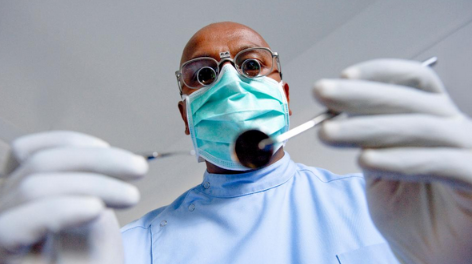Eat when you want, antidepressant eyebrow-raiser, who gets the worse long Covid, and more
22 Apr 2022
Posted by Andrew Kantor
I suspect some people would beg to differ
Using data from “a large pool of adult [American] patients,” a new study out of Saudi Arabia says that taking antidepressants, in general, doesn’t improve quality of life.
Why is that? They may need “nontherapeutic interventions” to complement the medication and really see an effect. Or maybe, as one Yale professor suggested, ‘much of the impact of antidepressants can be chalked up to the placebo effect.’ (He was not involved with the study.)
But this seems like an important caveat: The study didn’t consider which antidepressants patients were taking, nor their diagnosis, nor the severity of their depression.
THIS SUNDAY: Get the point-of-care testing training your mom would want you to have
Point-of-care testing is growing fast — it seems like there are OTC tests for every drug, disease, and condition you can think of.
So be ready to help your customers when they turn into patients. Don’t just know the ins and outs of point-of-care testing, have the certificate on the wall to prove it.
Lucky for you, GPhA is offering the gold-standard class: the NASPA Pharmacy-based Point-of-Care Testing Certificate Program. The live portion is this coming Sunday, April 24, in the GPhA Sandy Springs classroom. (The home portion is, you know, at home.)
There’s still time to register, so do it at GPhA.org/pointofcare, now!
Ladies’ luck
Women who get long Covid have more symptoms than the men who do.
There. Now at your next party you can say, “I read that women who get long Covid have more symptoms than men.”
(It comes from an Italian study that found that “[Females] were significantly more likely than [males] to report dyspnea, weakness, thoracic pain, palpitations, and sleep disturbance but not myalgia and cough.”)
Think you can design better PPE?
People are fat and thin, tall and short. Some wear cultural or religious clothing; others have big feet or stubby little T-Rex arms. The point is, we need personal protective equipment that’s flexible enough (literally or figuratively) to fit everyone and still do its job.
If you’ve got an idea for better PPE, you could win $55,000 from NIOSH. The agency’s Protective Clothing Challenge is offering that prize to the five teams who come up with the best ideas and designs for the next era of PPE.
If you ever thought, “I wish this gown had ….” now’s the time to flesh out that idea and maybe cash in.

PPE needs to take into account all sorts of cultural and religious requirements.
Who’s getting inappropriate antibiotics?
Black, Hispanic, and older folks, that’s who. Inappropriate antibiotics aren’t surprising — the CDC estimates that half of prescriptions aren’t necessary or aren’t useful.
But a study out of the University of Texas (presented at the European Congress of Clinical Microbiology & Infectious Diseases*) broke that down. Credit for a darned big data set: Using CDC data covering more than 7 billion outpatient visits of adults and children between 2009 and 2016 it found that …
- A whopping 74% of antibiotic prescriptions dispensed to patients 65 and older were inappropriate, even though younger patients got more prescriptions.
- 64% of antibiotic prescriptions written to Black patients were inappropriate, as were 58% written to Hispanic/LatinX patients.
- Females got more meds, but it was men — 58% of them — who got more inappropriate ones.
The most common reasons for inappropriate prescriptions were for illnesses that are not caused by a bacterial infection such as non-bacterial skin conditions, viral respiratory tract infections, and bronchitis.
* “Please credit the conference if you use this story.”
Double-duty radiation
Ionizing radiation kills cancer, sure, but why stop there? German researchers found that irradiating T-cells with X-rays will “trigger a signalling cascade” and get the immune system revved up.
It’s still in the lab phase, but if this translates to the real world, it could “enhance the killing effect of ionising radiation on tumour cells” by killing them directly and getting the body to attack them at the same time.
The description makes it seem so obvious:
Activated by what is known as store operated Ca2+ entry (SOCE), the concentration of Ca2+ in the cells begins to oscillate at a critical frequency, which in turn leads to the displacement (translocation) of a transcription factor from the cytoplasm into the cell nucleus.
The timing of the chow
The idea: You can lose more weight not just by cutting calories, but by changing the time of your meals — e..g, eating only between 8:00 am and 4:00 pm.
Unfortunately, it turns out that such time-restricted eating doesn’t make a difference, at least according to a small (139 people) study out of China. Cutting calories helps, of course, but by any measure — waist circumference, BMI, body fat, body lean mass, blood pressure, or metabolism — when you eat doesn’t change that.
Not really surprising
Across all adult age groups, races, genders, ages, incomes, and neighborhoods … dental visits decreased from 2019 to 2020. It’s almost as if people didn’t want a stranger’s face two inches away from theirs.



